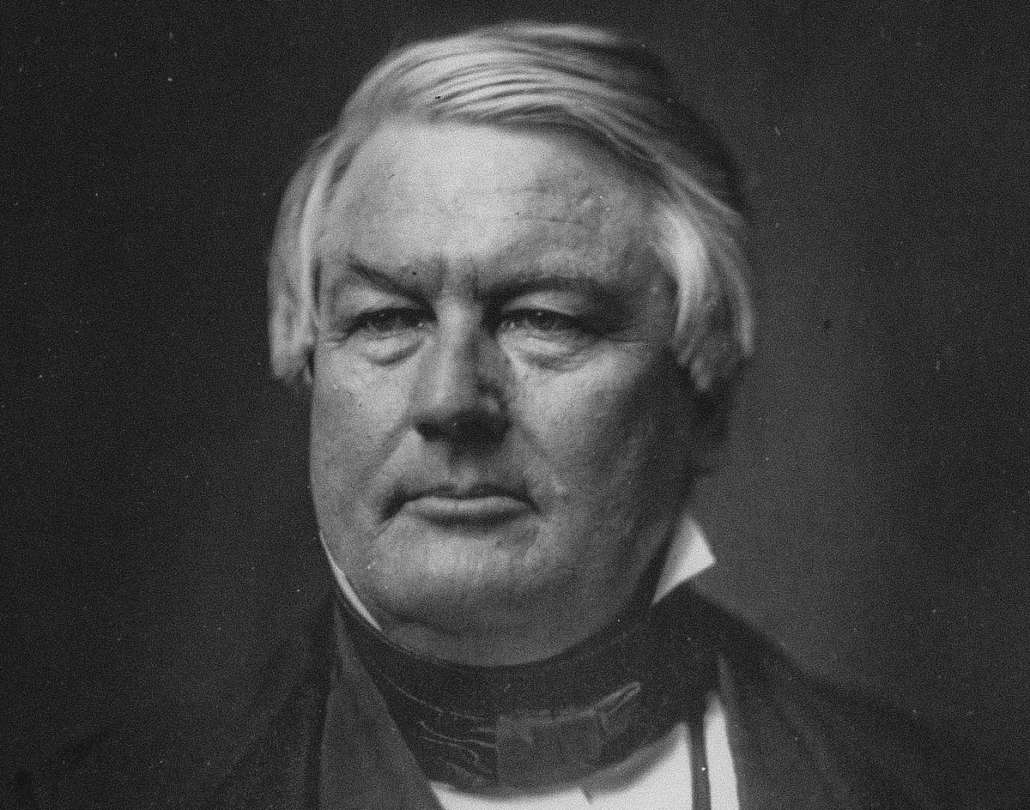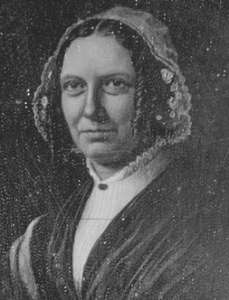REVIEW POTPOURRI: Millard Fillmore
 by Peter Cates
by Peter Cates
Millard Fillmore
The 13th President Millard Fillmore (1800-1874) was born into grueling poverty, in the Finger Lakes region of Western New York State, to Nathaniel (1771-1863) and Phoebe Millard Fillmore.
Fillmore was truly a self-made man in his endeavors to improve himself. He studied law and clerked for a judge who just happened to be his father’s landlord, one of the wealthiest men in the County and a cheapskate who paid young Millard very little. When Fillmore, on his own initiative, took on a paying client as her attorney to earn some badly needed money, the judge fired him.
Fillmore also subscribed to a local library and read almost all of the books on the shelves. At the age of 18, he enrolled in the class of a 20-year-old schoolteacher, Abigail Powers (1798-1853), whom he would fall in love with and marry seven years later.
By a combination of his wife encouraging him and his own endeavors, he arose in the ranks of New York state politics to serve in its legislature, as a representative from Buffalo, which would be his home base for most of his adult life, and to become State Comptroller, just before being picked by the Whigs as Zachary Taylor’s running mate.
Fillmore served two separate terms in Congress from 1833 to 1841 and appointed as chairman of the House Ways and Means Committee.
Taylor ignored his vice-president most of his 16 months in office. After Taylor’s death, his cabinet, per tradition, offered their resignations, expecting to be kept on, but Fillmore accepted those resignations.
During his years in office, he sent Commodore Matthew Perry on an 1853 trip to Japan, which up to then had been a closed society, and was successful in opening it up for trade.
Fillmore also stopped France’s attempt to annex Hawaii, eased sectional tensions between Texas and New Mexico and appointed Mormon leader Brigham Young as the first governor of the Utah territory.
To his discredit, Fillmore supported the Compromise of 1850, which stopped the extension of slavery in the western states and territories and enforced the Fugitive Slave Act. While being personally opposed to slavery, he didn’t believe the federal government had any right to interfere in the South.
Fillmore’s wife Abigail established the first White House library and held literary salons, entertaining such writers as Charles Dickens, William Makepeace Thackeray and Washington Irving, but had frail health due to a broken ankle and couldn’t stand for very long periods of time; daughter Mary (1832-1854) assumed most other duties as a very charming hostess and talented musician on the harp, piano and guitar.
Fillmore was defeated in his re-election bid so he and his wife planned a tour of the South, but Abigail came down with a cold after being outdoors too long at Franklin Pierce’s inauguration, and died on March 30, at D.C.’s Willard Hotel. Daughter Mary died a year later of cholera.
The couple had a son Millard Powers Fillmore (1828-1889) who became a lawyer and who never married. After he died , his will directed that all of his correspondence, including that of his father, be burned and this act has aroused much curiosity.
After leaving office, the former president traveled to England where he was received by Queen Victoria who described him as the most attractive man she ever met.
In 1858, he married a wealthy widow, Caroline McIntosh (1813-1881), with whom he also had a very happy marriage, but she demanded he sign a prenuptial agreement.
Fillmore experienced very good health until he suffered a stroke and died shortly after, at 74, in 1874. Three U.S. Senators attended his funeral including Maine’s Hannibal Hamlin.
Millard Fillmore was heavily criticized for his weak stand against slavery, in particular by Harry Truman who called him “a weak, trivial thumb-twaddler who would do nothing to offend anyone.” But later historians have rightfully credited him for his tact and moderation during an era of grueling tensions and violence leading up to the Civil War.
Responsible journalism is hard work!
It is also expensive!
If you enjoy reading The Town Line and the good news we bring you each week, would you consider a donation to help us continue the work we’re doing?
The Town Line is a 501(c)(3) nonprofit private foundation, and all donations are tax deductible under the Internal Revenue Service code.
To help, please visit our online donation page or mail a check payable to The Town Line, PO Box 89, South China, ME 04358. Your contribution is appreciated!




Leave a Reply
Want to join the discussion?Feel free to contribute!